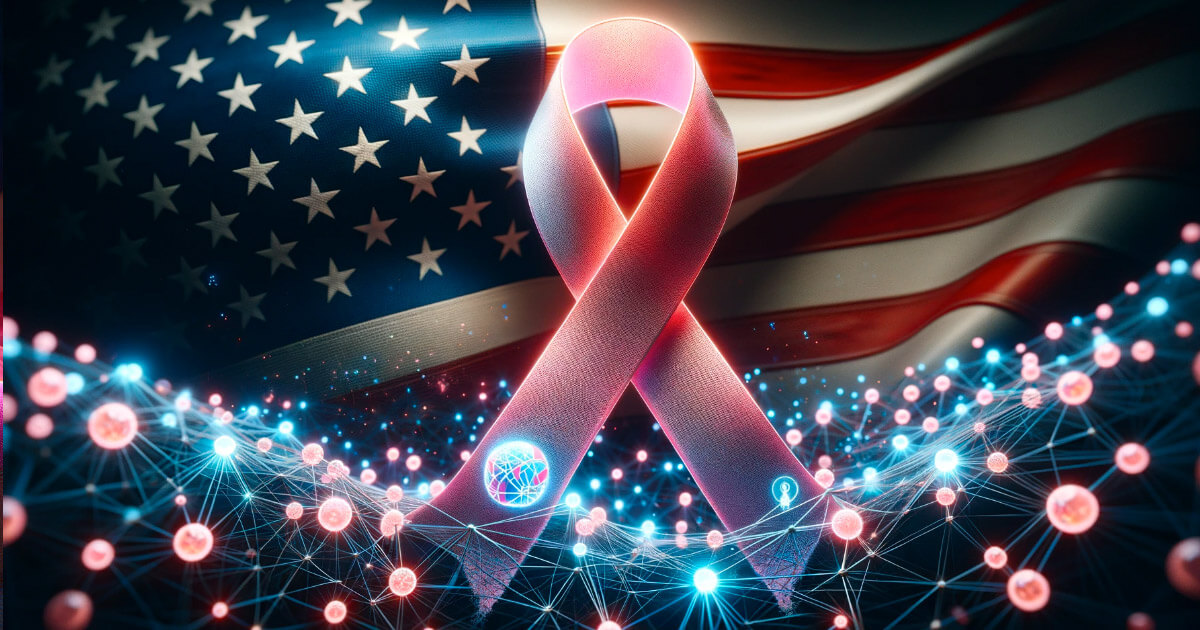American Cancer Society leverages Gitcoin for decentralized open-source cancer research funding

In a move that blends innovation with philanthropy, the American Cancer Society (ACS) has embraced web3 technology by partnering with Gitcoin, a leading figure in open-source funding, according to a statement shared with CryptoSlate.
This strategic collaboration signifies a milestone for the ACS as it steps into the decentralized world of web3, leveraging Gitcoin’s expertise to drive its ACS Cares program and the Crisis Response Fund.
The ACS round, distinct and independent from the regular seasonal Gitcoin Grants program, is designed to benefit the ACS Cares program and the Crisis Response Fund directly. This initiative is crucial, as donations will be channeled towards groundbreaking cancer research, advancing health equity initiatives, and bolstering patient support programs.
Additionally, it will aid in providing essential lodging for cancer patients undergoing treatment. This venture represents a crucial intersection of technology and philanthropy, where blockchain’s potential is harnessed for impactful healthcare outcomes.
The initiative represents a continued interest in decentralized open-source funding by a renowned non-profit organization utilizing Gitcoin technology. The first instance was a significant QF collaboration pilot with UNICEF in 2022.
Gitcoin and decentralized funding.
The significance of Gitcoin in the realm of open-source funding cannot be overstated. Since its inception, Gitcoin has played a pivotal role in the web3 ecosystem, mainly through its utilization of Quadratic Funding (QF). This innovative funding mechanism has enabled Gitcoin to disperse over $50 million across more than 100 rounds, empowering organizations like UNICEF and now the ACS in their mission-driven endeavors.
QF is central to Gitcoin’s strategy, a crowdfunding approach that values the number of contributors over the total donation amount. This method fosters widespread community involvement and ensures equitable allocation of funds to projects that resonate most with the public. In the case of the ACS round, this methodology promises to channel resources efficiently towards breakthrough cancer research, health equity initiatives, and patient support programs, all pivotal in the fight against cancer.
Azeem Khan, Head of Impact at Gitcoin, commented,
“By using Gitcoin, the American Cancer Society gains access to a vibrant community of technologists and crypto enthusiasts who are passionate about driving positive change.
This partnership combines Gitcoin’s expertise in blockchain with the American Cancer Society’s commitment to cancer research and prevention, creating a powerful synergistic effect in the fight against cancer.”
Azeem Khan added, “Participating in the ACS round powered by Grants Stack is a unique opportunity for individuals and organizations to contribute to the fight against cancer with blockchain technology.”
Kyle Weiss, Executive Director at the Gitcoin Foundation, and Nicole d’Avis, Protocol Lead at the Public Goods Network (PGN), have both expressed enthusiasm for these collaborative efforts. The PGN, an innovative project in the Gitcoin ecosystem, operates as a low-cost Layer 2 OP Chain, directing most of its net sequencer fees towards public goods. This initiative presents a cost-effective alternative to the Ethereum mainnet for users and developers, simultaneously generating funds for public goods through transactions.
While open-source funding may not have captured mainstream media attention, entities like Gitcoin and PGN have quietly revolutionized how public goods are supported. Their efforts are instrumental in creating sustainable and reliable funding sources for initiatives that serve the greater good.
The American Cancer Society’s venture into web3 with Gitcoin is more than a fundraising initiative; it is a beacon of innovation in the philanthropic world. By adopting blockchain technology and leveraging the power of community-driven funding, the ACS is furthering its mission to combat cancer and setting a precedent for other non-profits to explore the transformative potential of web3.